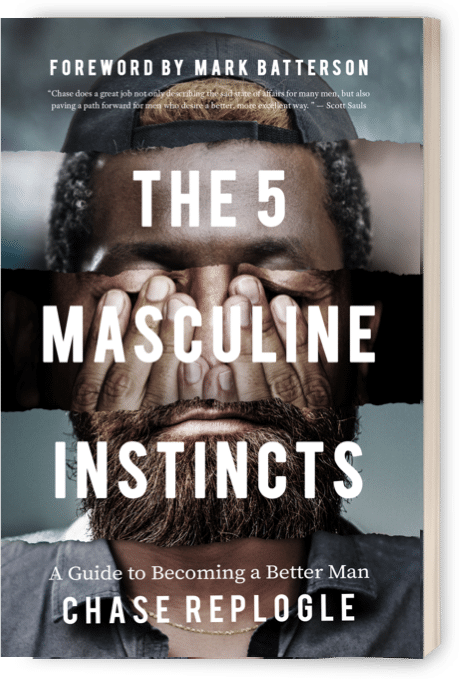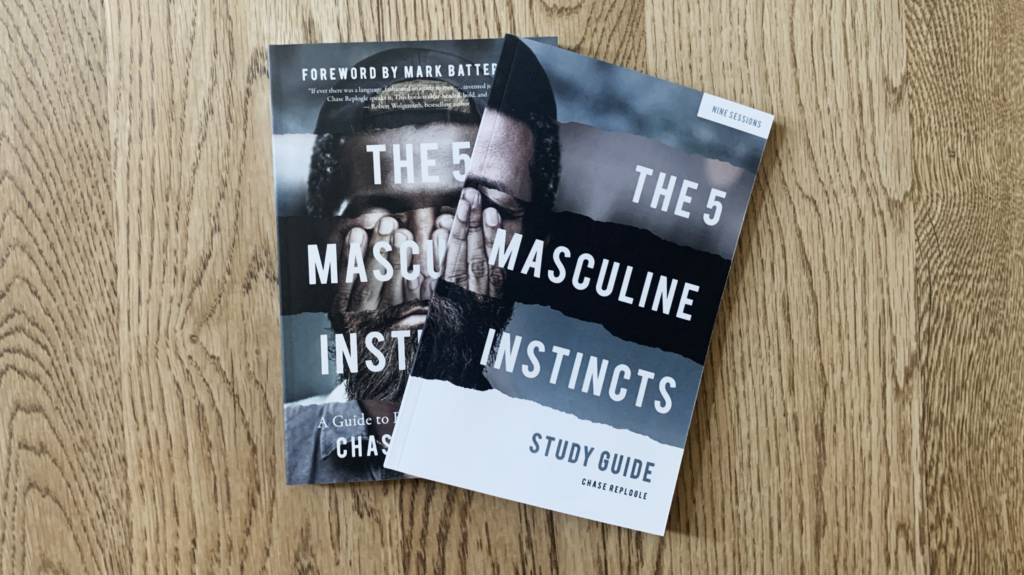Article
What the Church Gets Wrong About Men Today
Moving Beyond Beards, Bacon, and Blowing Things Up
Every semester, my Bible College held a separate men’s and women’s chapel, and every year we talked about the same things. My roommate would customarily joke, “Boys, today’s the day we’re reminded that the girls are princesses, and we’re perverts.” And every year, he was pretty much right. Usually, it was the sex talk, sometimes rounded out with warnings about money and power too. While the girls were told how much God loved and valued them, we were told to grow up.
Any of us could have led those chapels. We had been raised on it in youth groups, warned of it in college, and would soon inherit a secular culture with its own blistering critiques of men. From cries of patriarchy to the #MeToo movement to Gillette’s Super Bowl commercial charging men with toxic masculinity, never has there been a time when the mere word masculinity has caused so much debate, controversy, and anger.
Recently, former presidential candidate, Andrew Yang, acknowledged how the debate is costing men.
“Male failure begets male failure, to society’s detriment. Our media, institutions and public leadership have failed to address this crisis, framing boys and men as the problem themselves rather than as people requiring help.”
Our world seems to offer men two primary ways of thinking about masculinity. There are those who conclude that traditional forms of masculinity are toxic and should be deconstructed and rebuilt for a new era, and, in an opposite and equally energized reaction, there are those that argue masculine instincts should be indulged with wild abandon. They contend, it is the raw masculine pursuit that is salvific.
Most men end up feeling defensive, not entirely sure what they are defending, nor having reasoned their defense, but feeling threatened, nonetheless. Our conversations about manhood have collapsed into soundbites, slogans, cardboard cliches, and straw man opponents. We end up with trenches dug endlessly deeper. Men don’t change; they only intensify.
Some will roll their eyes at all this. Men seem to be doing just fine, they argue. The patriarchy, right? But men aren’t doing fine. In nearly every measurable way, men are failing. Men are more likely to commit violent crimes and be the victim of them. Men are more likely to be addicted to drugs and alcohol. Men are more likely to drop out of school and also more likely to continue living at home unemployed. A whole online subculture has formed of men living in their parent’s basement, describing themselves as “incels.” It stands for involuntary celibates. But it’s not just young men. The Boston Globe recently suggested that the greatest threat to middle-aged men is no longer smoking or obesity but loneliness. Men are now committing suicide at a rate of four to one compared with women.
Also, we’re continuing to see the long-term effects of online pornography on each new generation of men. One recent study found that 79% of men between the ages of eighteen and thirty consume pornography at least monthly. It has become so ubiquitous that millennials, though they have the most progressive view of sex, are practicing it increasingly less. The CDC reported that since 1991 teen intercourse has dropped from 54 to 40 percent. Men are dating less and getting married less, and pornography has a lot to do with it.
Disengagement of men from American homes has become one of the greatest social challenges of our time. One in four children now grows up without a father, and that doesn’t count the dads who, though physically present, are emotionally disengaged from their kids. The National Fatherhood Initiative has concluded that “There is a father factor in nearly all social ills facing America today.” Fatherlessness has been linked to a greater risk of poverty, teen pregnancy, substance abuse, incarceration, and violent crime. There are certainly toxic men, but the real toxin in our society is the home with a disengaged or missing dad.
When men are not the problem, they are the joke. Even the Atlantic has pointed out that “On TV if there is a dad in the home, he is an idiot… You put a dad in front of his kids, and the dad gives the worst advice. You put a dad in front of a toaster, and he burns the house down.” Set the bar that low, and don’t be surprised when men rise only to it.
In an opinion piece for the New York Times, Michael Ian Black lamented: “To be a girl today is to be the beneficiary of decades of conversation about the complexities of womanhood, its many forms, and expressions. Boys, though, have been left behind. No commensurate movement has emerged to help them navigate toward a full expression of their gender. It’s no longer enough to ‘be a man’—we no longer even know what that means.”
Well, How About the Church?
I was recently at my local independent Christian bookstore. Like most, it has its shelves of Christian men’s and women’s resources. The women’s section is made up of six bookcases, and a wide range of book’s promoted as new releases. Beside it, the men’s section was a single bookcase. And upon closer inspection, part of the men’s section was overflow from the women’s. The men’s section was still anchored by Wild at Heart and Every Man’s Battle. Anecdotal proof of the line I frequently hear from Christian publishers, “Men don’t read.”
When I first planted the church I now pastor, I used to tell my wife I felt more like I was leading a middle-aged women’s Bible study than a church. It’s hard to get men to show up. I’m not alone in that experience. There continues to be a persistent 45-55 male to female split in the church.
The American church has tried just about everything to solve it. From sermon series to special events, we’ve put beards and bacon on everything we can. Still, we don’t seem to be making much progress. Some have claimed it’s the feminization of the church. I don’t think that’s right. I think our conversations with men feel too much like the world’s. The cultural critique of masculinity is all about externals and all about pointing to the problems. The church largely continues to offer men the same critiques and awkward external cliches.
Motivated by Paul’s exhortation to be all things to all people, the church has worked diligently to contextualize the gospel and offer a “winsome” witness to each worldview. We’ve long recognized a need to earn the world’s attention and validate our preaching through Christian hospitality and charity. To be fair, the church has often failed to live up to these commitments, but when it comes to men, it’s hard to recognize much winsomeness. We’ve formed along the cultures existing battle lines, making masculinity toxic or a shallow cliche.
When the church has tried to articulate a more nuanced biblical definition of masculinity, it almost immediately slides into the egalitarian/complementarian debate, as if a properly articulated theology of a man’s roles is enough to secure his manhood. Christian manhood becomes a theological posture. Men think the articulation of their position is their proof of manhood. Men play the part and carry on the facade, hoping one day they might grow into it. We know all of the responsibilities required of us, but the church has offered very few conversations about cultivating the kind of character needed to bear those responsibilities well. Is it any surprise that so many Christian men are exposed for faking it, for lacking real integrity? What men need is a conversation about how to grow in Christlike character.
No one talks about character these days. We’re too busy defending a position. But without character, men are cursed by the ideals they know but struggle to live up to. Perhaps men are uninterested in the church because it tells them what they’ve already heard and fails to offer them a way forward.
If you want a word for it, I like the word malaise. Articulating the disengagement of men in his own time, Walker Percy wrote,
“Men are dead, dead, dead; and the malaise has settled like a fall-out and what people really fear is not that the bomb will fall but that the bomb will not fall—on this my thirtieth birthday, I know nothing and there is nothing to do but fall prey to desire.”
Men are experiencing a deep malaise. They have become cynical and disillusioned. The debates get old, and so many have never known a father or a paster who could show them a better way. Without a path, men become defensive and disengaged. We sense something is wrong, but no one can quite articulate it. Men fall back into desire. They trust instinct. They detach themselves from the complexity of the world and live instead vicariously through sports teams, and video games, and online fantasies.
Morality becomes instinctive, momentary pragmatism. Sixty-two percent of men now say right and wrong depends on the situation and forty-seven percent say morality is best determined by common sense. Men have checked out and turned to their own instincts for guidance. No one else is offering them a way forward.
Cultivating a Chest
C. S. Lewis warned this was coming. He wrote in The Abolition of Man:
“In a sort of ghastly simplicity we remove the organ and demand the function. We make men without chests and expect of them virtue and enterprise. We laugh at honour and are shocked to find traitors in our midst. We castrate and bid the geldings be fruitful.”
Lewis’s phrase—men without chests—is often quoted but rarely in its proper context. Lewis wasn’t calling for some bench-pressed masculine cliche. Lewis was trying to describe the way men were being robbed of character in his own day. Lewis described men, and women, as being made of three parts: head, stomach, and chest. Lewis was attempting to offer physiological images of our deeper impulses and instincts.
Lewis described a man’s belly as the seat of appetite, desire, and impulse. By his stomach, alone, man is more like the animals, driven by instinct. In juxtaposition to his stomach, a man’s head was the seat of logic, rationality, and ideals. By his head, he was more like the angels. But man is neither stomach nor head alone. Men live in a world of their own high ideals and the growling of their guts. For Lewis, the worst place to live was caught between these two, missing a proper chest. But that’s exactly where I find so many men, especially Christians.
We know all too well who we should be. We understand the ideals of Christian manhood: loving and serving as fathers, husbands, and sons. Men are not lacking an image of who they could be, who they wish they were. Even the most disillusioned man is proof that he once believed something better was possible. But men are just as often ruled by their stomachs. Beaten by their cravings and desires. Impulsive and naive in indulging their first instinct.
And why not? Our world, and Lewis’s, has made all moral claims subjective to the individual. We applaud every emotional desire and affirm every unique self-expression. But not men’s. In a surprising irony, we raise men in a culture that encourages them to trust their stomachs and then call them toxic for doing so. “We laugh at honor and are shocked to find traitors in our midst.” Men see through it and check out.
Lewis called for the cultivation of the chest. It was by a man’s chest that he mediated between the ideals and impulse. It was by his chest that he cultivated the knowledge and character to live above his instincts.
Lewis concluded: “The head rules the belly through the chest—the seat… of emotions organized by trained habit into stable sentiments… these are the indispensable liaison officers between cerebral man and visceral man. It may even be said that it is by this middle element that man is man.”
Men must be taught. Chests must be built. We must educate men on how to get better. It isn’t enough to mount campaign slogans, or protest events, or leverage advertising dollars to point out their flaws. Men must be convinced that more is possible. We are not destined to be perverts, not destined to be dumb, lonely, and addicted. Not destined to recliners or man-caves. Christ has offered us something more.
Surely it was what Peter meant when he encouraged the church, “Male every effort to supplement your faith with virtue.” The church’s best hope for reengaging men is to rediscover the Christian education of character. Christ calls us not just to receive but also to follow, to grow, to cultivate Christlike character.
I like the way D. L. Moody put it,
“The best way to show that a stick is crooked is not to argue about it or to spend time denouncing it, but to lay a straight stick alongside it”
Get Updates on New Articles
I know, no one wants more emails. I promise, no spam and you can cancel at any time. I’m excited to share more about The 5 Masculine Instincts with you. If you ever have questions, please feel free to send me a message.

Chase Replogle
Chase is the pastor of Bent Oak Church in Springfield, MO and hosts the Pastor Writer Podcast. A native of the Ozark woods, he enjoys being outdoors with his wife and two kids: sailing, playing the mandolin (badly), and quail hunting with his bird dog Millie.

Don’t trust your instincts—there's a better way to become a better man.
The BookArticle

The New 5 Masculine Instincts Study Guide: And Why I’m Optimistic for Men
It’s been over a year since I released The 5 Masculine Instincts. I wrote the book because, as a pastor, I saw the way so many men were wrestling with questions…
Article

The Responsibility of Fatherhood: How Fatherhood Begins With Just Showing Up
I believe it is a truth that a mother is made over a matter of months, but you always become a father in a single moment. I remember that moment…
Article

The Books and Authors That Most Influenced The 5 Masculine Instincts:
The 5 Masculine Instincts is full of the books that have impacted me over the last decade of reading. I’ve gathered up a list of some of the books and…




